The keto diet has different alternatives to wheat flour, allowing you to enjoy keto baking without compromising your weight loss. In addition to flour, cornstarch is often used in cooking as a thickener. It is used to make dough, sauces, soups, gravies, and other dishes. However, both cornstarch and corn are not keto options. It contains too many carbohydrates that can stop your ketosis and lead to weight gain.
The good news is that cornstarch has several keto alternatives that will make your keto cooking as colorful and varied as it would be on a classic diet.
How many carbs are in cornstarch? Is cornstarch keto? What are keto alternatives to cornstarch? This article will give you all the details and share simple tips for using keto thickeners. Keep reading to find out more!
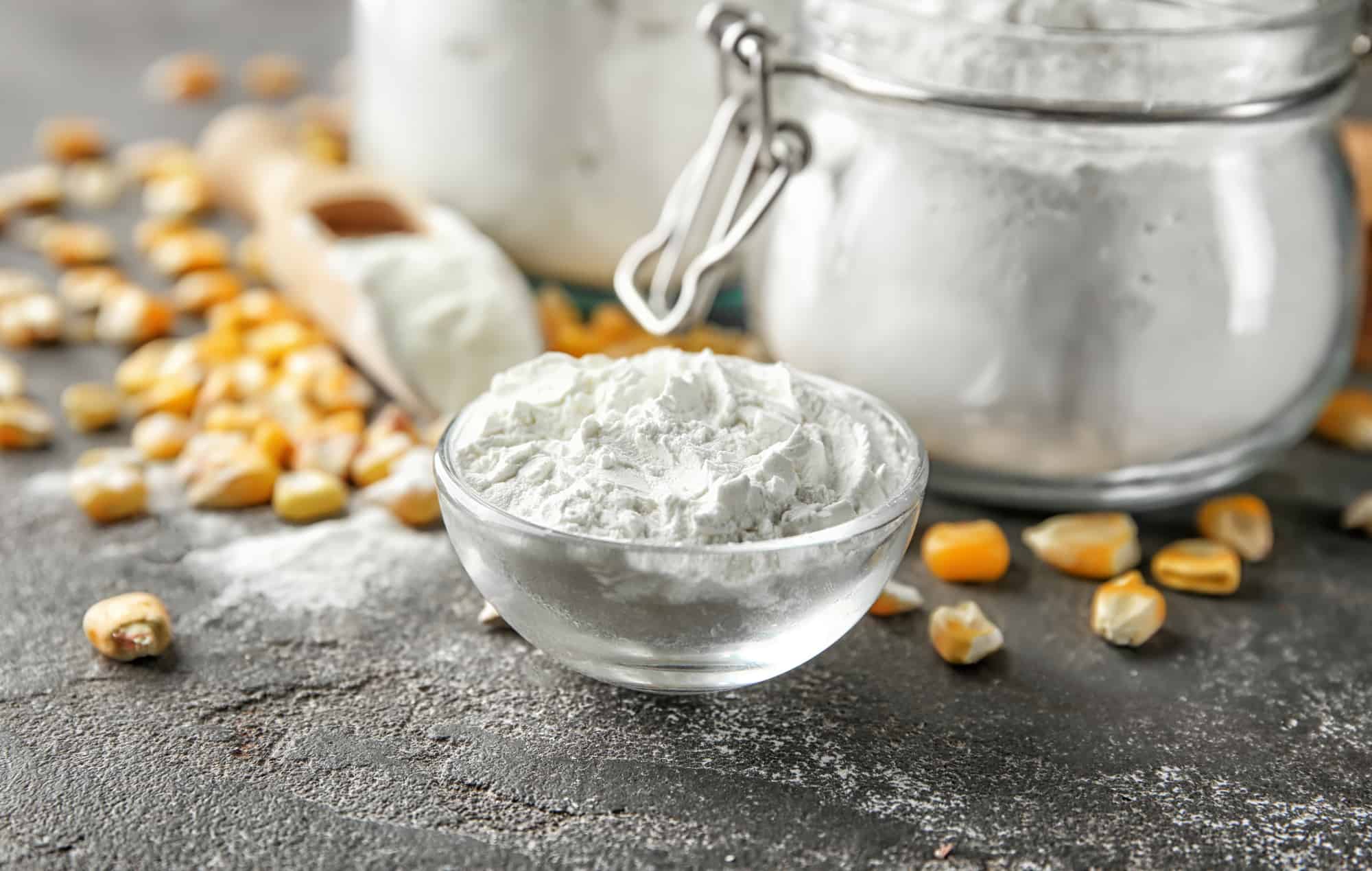
What Is Cornstarch?
Corn starch is a white powder with low viscosity, with an aroma and taste characteristic of corn grains. To obtain corn starch, corn kernels are placed in a solution of sulfurous acid and then crushed, and the germ is isolated. After that, the resulting mass is crushed again, making it possible to obtain starchy milk. Then, starch and insoluble protein are separated in specialized centrifuges. To obtain ready-made starch, the powder is thoroughly washed and dried. After drying, it becomes a light powder of white or slightly yellowish color.
Corn starch is a powder that has an increased ability to swell in cold water. It is used as a natural thickener for making gravies, sauces, mousses, puddings, custards, and various pastries. It is also added to the dough for pancakes, creams for cakes, and various sauces with a delicate texture.
Need Keto Motivation? The Best Tips for Your Keto Lifestyle
In addition, corn starch does not contain gluten [1], which means that people diagnosed with celiac disease can use it for cooking. Baking from corn starch turns out to be tender, fragrant, and crumbly, distinguished by a special taste, and beautiful golden brown color. Cornstarch makes excellent muffins, casseroles, tortillas, pies, hash browns, and pancakes without the traditional floury flavor.
Is Cornstarch Keto?
So, you already know that cornstarch is made from corn, which is not a keto-friendly green vegetable. Is cornstarch keto?
100 grams of cornstarch contains:
- 381 calories
- 3 grams of protein
- 1 grams of fat
- 91 grams of carbohydrates
- 1 gram of fiber
- 90 grams of net carbs.
As you can see, cornstarch contains too many carbohydrates to hurt your ketosis, even in a couple of tablespoons. But the main thing is that these are complex starchy carbohydrates that cause bursts of insulin and provoke weight gain. For this reason, you should completely eliminate cornstarch while on a keto diet. But don’t despair. Several keto cornstarch substitutes contain the allowed amount of carbs. So let’s take a closer look at them.
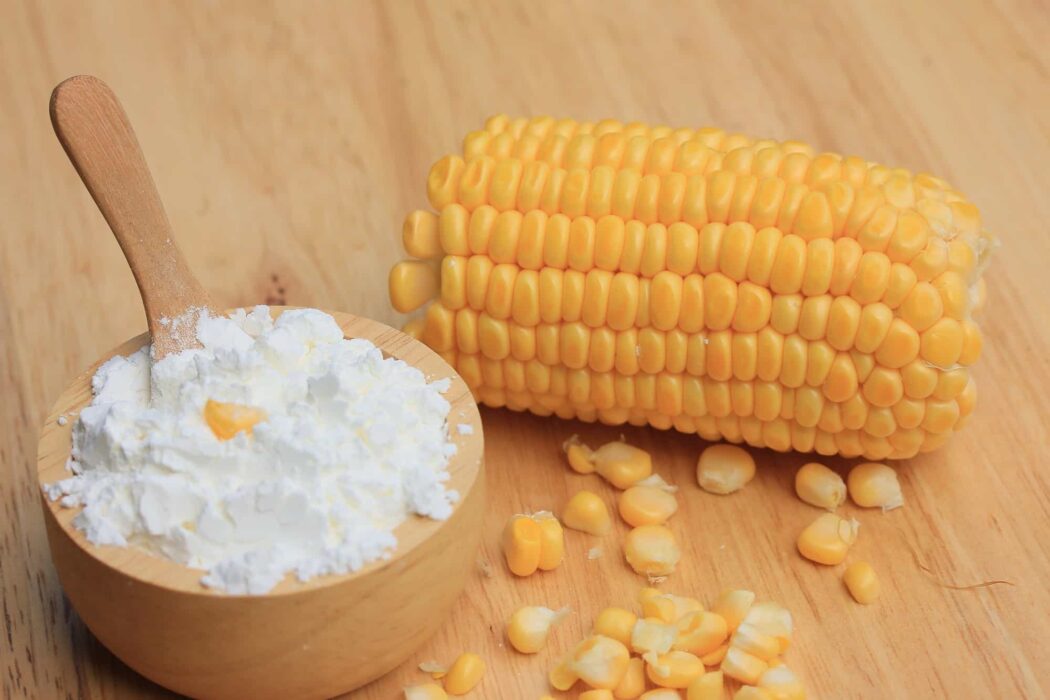
Keto Cornstarch Alternatives
Chia Seeds
Chia seeds contain important elements such as manganese, phosphorus, calcium, zinc, copper, and potassium. Another benefit is the abundance of Omega-3 fatty acids and antioxidants, which have anti-inflammatory properties [2]. In addition, chia seeds tend to swell into a liquid, turning into dense gel and thickening dishes. You have to add a couple of tablespoons of chia seeds to any liquid and wait for them to swell. They are commonly used for various keto desserts, mousses, creams, and puddings.
Are chia seeds keto? 100 grams of chia seeds contain:
- 486 calories
- 16 grams of protein
- 31 grams of fat
- 40 grams of carbohydrates
- 34 grams of fiber
- 6 grams of net carbs.
As you can see, chia seeds are keto, and you can use them to make various keto desserts without harming your ketosis.
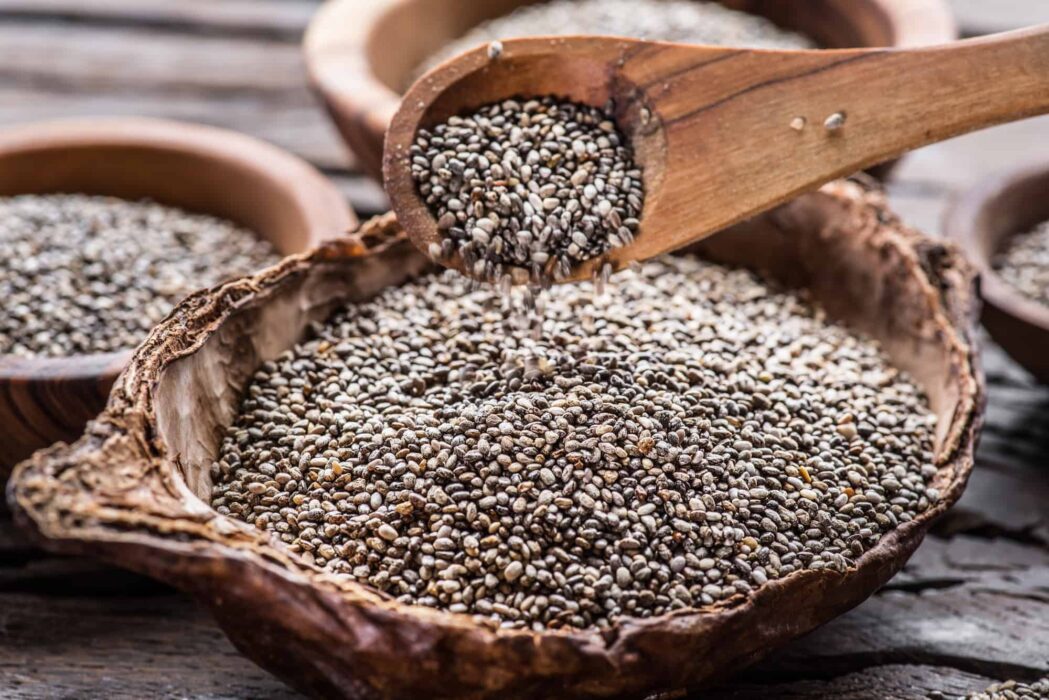
Flaxseeds
Like chia seeds, flaxseeds also contain abundant Omega-3 fatty acids. However, their benefits are more impressive. Flax seeds are the number one source of lignans, a group of polyphenols found in plants.
They help improve the health of your hair, enhance skin health, help lower cholesterol levels, provide plenty of antioxidants, and help speed up weight loss [3].
Carbs in Flour: High-Carb Types and Their Low-Carb Substitutes
Ground flaxseeds become a thick gel when in contact with liquid, making them great for binding ingredients in recipes. Besides, they do not have a special taste, so they will help you replace starch or flour in both sweet and spicy baked goods, as well as various soups, sauces, and desserts.
Are flax seeds keto? 100 grams of flax seeds contain:
- 550 calories
- 40 grams of protein
- 20 grams of fat
- 30 grams of carbohydrates
- 26 grams of fiber
- 4 grams of net carbs.
We can conclude that flax seeds are keto, and you can use them in keto cooking without restrictions.
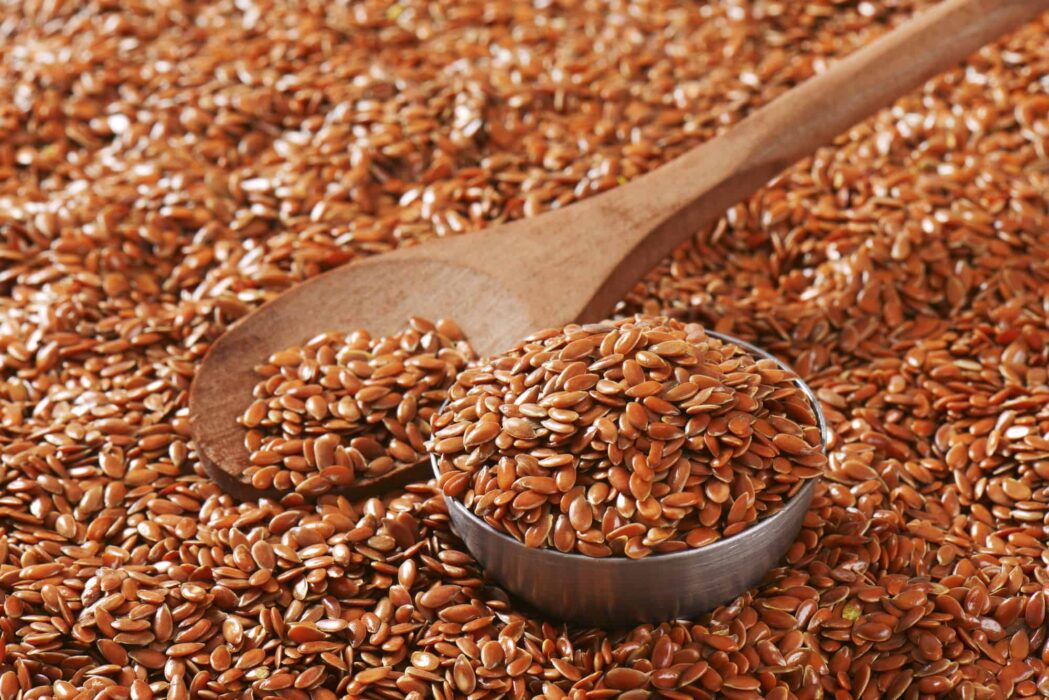
Almond Flour
One of the main uses of cornstarch is to thicken soups, stews, and other foods of such consistency. However, almond flour can give you the same texture and consistency without high carbs or any negative health effects. Just a couple of tablespoons of almond flour will thicken any dish and give you the same effect as cornstarch.
You get many important elements in one serving of almond flour, including iron, vitamin E, manganese, potassium, magnesium, and calcium. As a result, it improves heart health [4], reduces the risk of cancer cells, and helps manage blood sugar levels. It helps people struggling with different metabolic disorders, such as diabetes or obesity, and also increases energy levels throughout the day.
Is almond flour keto? 100 grams of almond flour contains:
- 163 calories
- 14 grams of protein
- 16 grams of fat
- 13 grams of carbohydrates
- 8 grams of fiber
- 5 grams of net carbs.
Almond flour is keto-friendly. However, you should be careful not to exceed your daily carb intake.
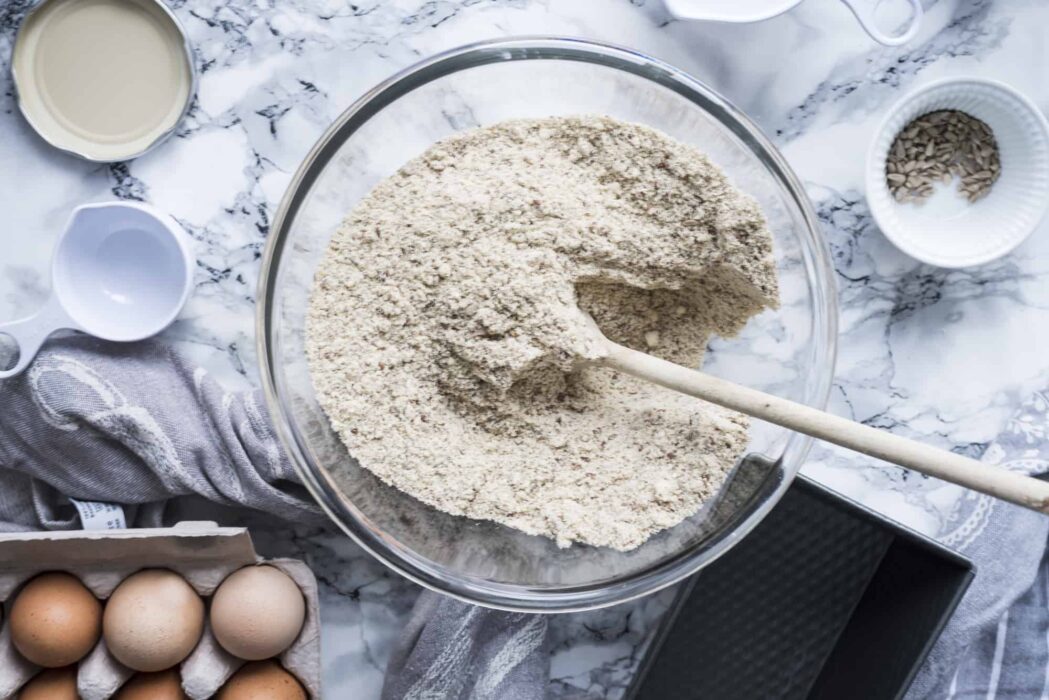
Cauliflower
Cauliflower is my go-to thickener for soups, sauces, keto porridges, and stews. It’s very easy to thicken any dish with cauliflower – all you need to do is grind well-boiled cauliflower inflorescences and mix them with cream, broth, or gravy. You’ll get the consistency you want. Then adjust the amount of cauliflower to get a different consistency of the ready dish.
Is Kale Keto? Main Benefits for Your Diet
Cauliflower is a source of several useful substances, minerals, and vitamins. For example, it contains beneficial vegetable protein, vitamins C, B6, B1, A, PP, potassium, sodium, magnesium, iron, calcium, and phosphorus.
In addition, this vegetable also contains a large amount of tartronic, citric, malic acids, and pectin. As a result, cauliflower helps the walls of blood vessels, removes cholesterol from the body, improves digestion, and reduces the risk of birth defects [5]. It also has anti-inflammatory properties, is necessary to improve heart function, and serves to prevent cancer.
Is cauliflower keto? 100 grams of cauliflower contain:
- 25 calories
- 2 grams of protein
- 3 grams of fat
- 5 grams of carbohydrates
- 3 grams of fiber
- 2 grams of net carbs.
As you can see, this ratio of nutrients makes cauliflower a low-carb vegetable that you can safely add to your keto menu without restrictions.
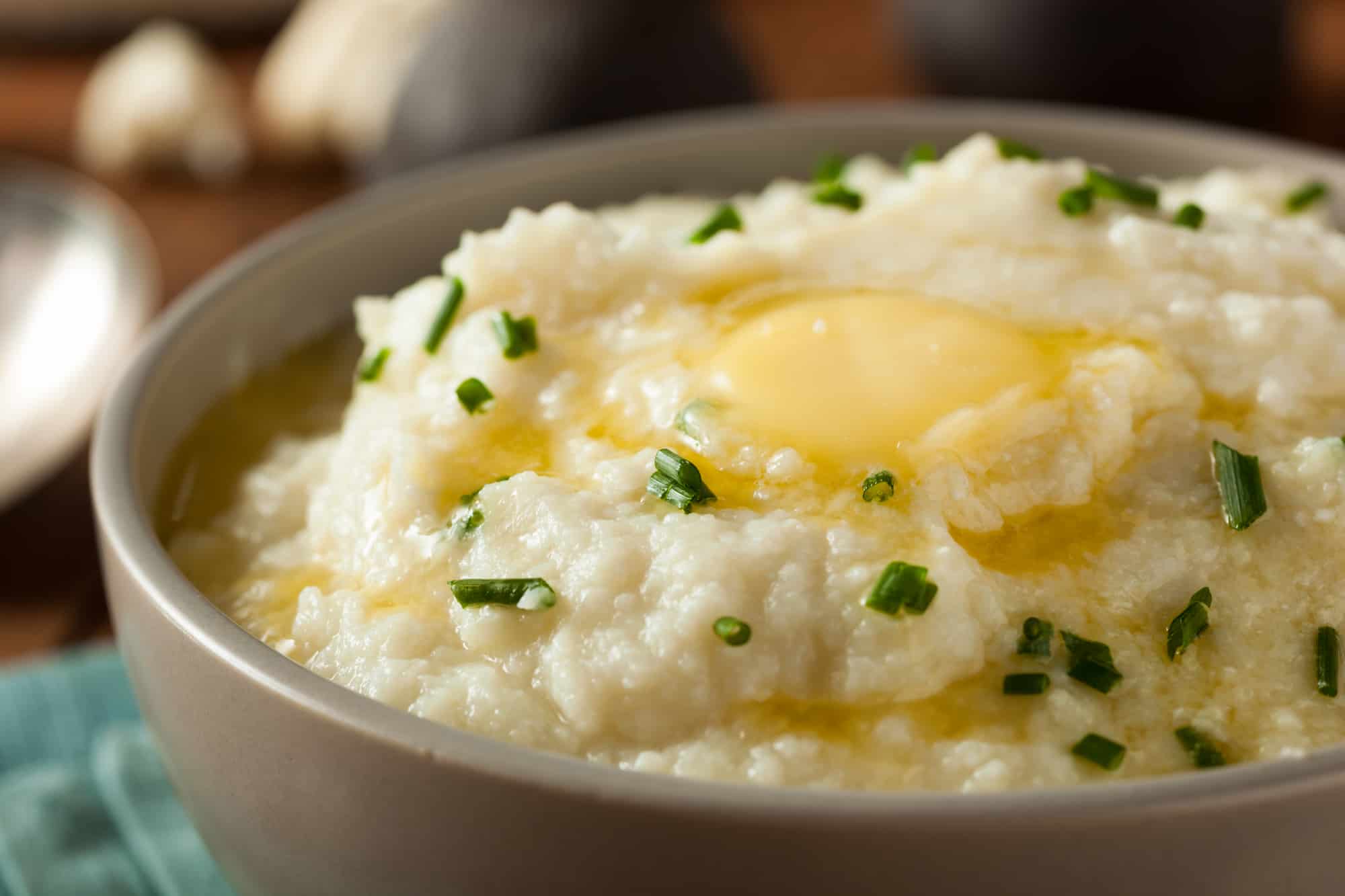
Glucomannan Powder
Glucomannan powder is a type of dietary fiber derived from the root of the konjac plant. It is a tasteless substance, so this powder can be added to almost all dishes without a noticeable difference. But what are the other benefits of this low-carb thickener? Due to its high fiber content and low-calorie content, glucomannan powder is extremely beneficial for weight loss and appetite management [6].
Another benefit of this powder is a natural prebiotic that improves digestion, hormone levels, and gut health, as well as reduces inflammation and helps the immune system. Glucomannan also alleviates any digestive or constipation problems, helps lower cholesterol, and helps treat diabetes.
Is glucomannan powder keto-friendly? 100 grams of glucomannan powder contain:
- 0-5 calories
- 0 grams of protein
- 0 grams of fat
- 5 grams of carbohydrates
- 5 grams of fiber
- 0 grams of net carbs.
As you can see, glucomannan powder is keto as it contains zero calories and carbs overall. Therefore, you can add it to your keto meals without harming your ketosis state.
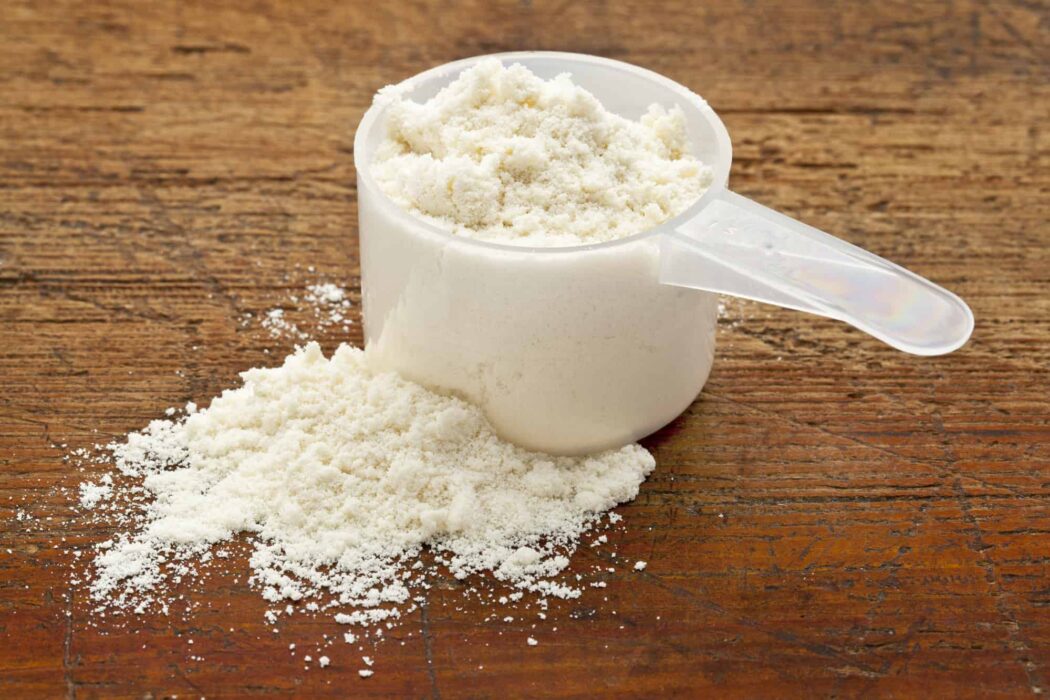
Psyllium Husk
Psyllium is another keto substitute for corn starch on a low-carb diet. It is psyllium bran with lots of dietary fiber, vitamins, minerals, and zero net carbs [7]. It absorbs water well, swells, and works as a thickener for any liquid, making it a great ingredient for soups, stews, sauces, and various keto desserts.
Psyllium is usually enough to add 1-2 grams of psyllium husk to about a couple of servings of the finished dish. The exact dosage depends on the recipe. In addition, psyllium husk has no taste and can become part of any dish. Psyllium is available as a husk or powder. I prefer buying the powder (or powdering the husk in a blender) because it’s more versatile and goes well with delicate textured dishes.
Is psyllium keto-friendly? 100 grams of psyllium husk contain:
- 200 calories
- 6 grams of protein
- 5 grams of fat
- 77 grams of carbohydrates
- 77 grams of fiber
- 0 grams of net carbs.
As you can see, with zero net carbs, you can use psyllium on keto without restrictions.
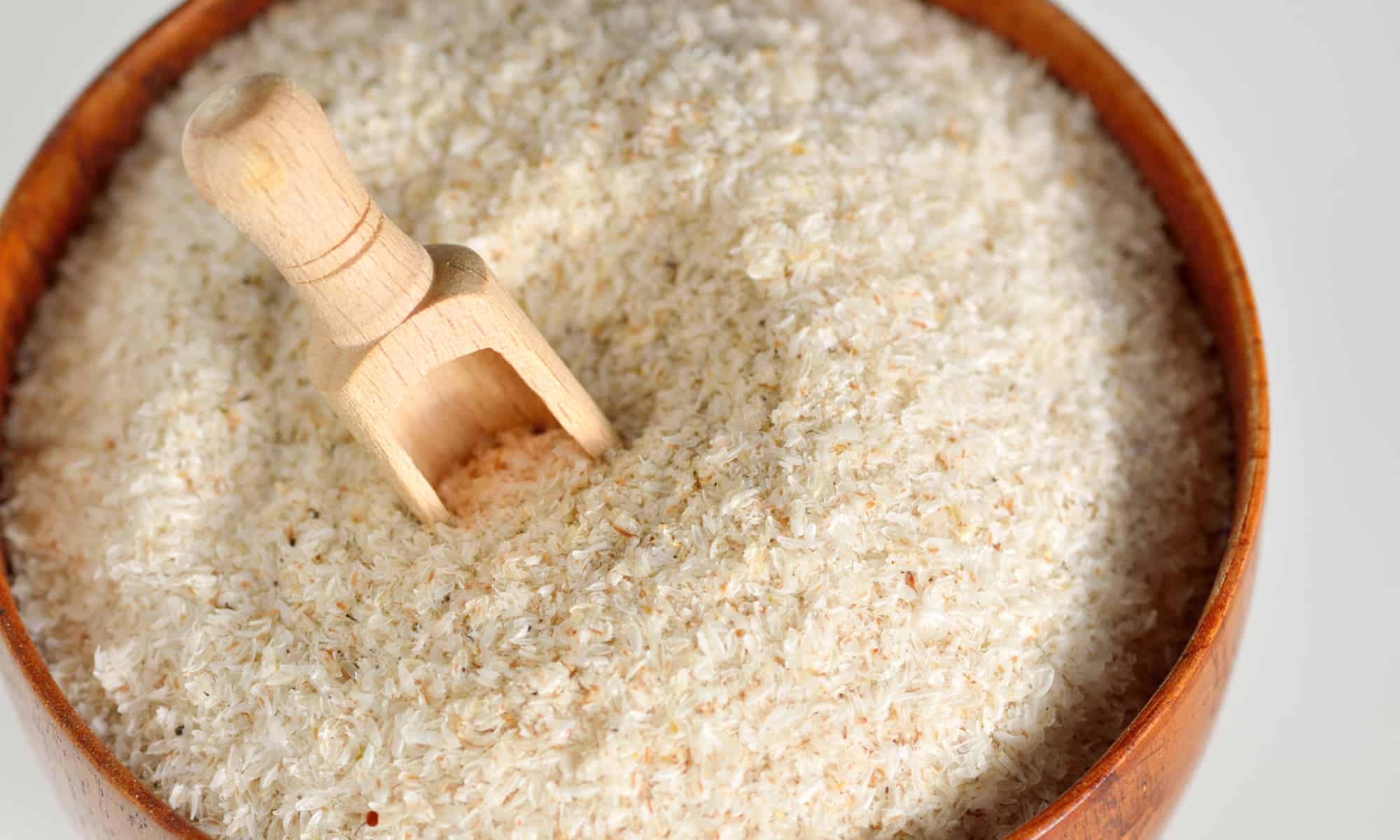
Xanthan Gum
Xanthan gum is a natural polysaccharide that is produced by Campestris Xanthomonas bacteria from sugar, corn starch, or molasses. It was isolated specifically in order to create a new type of thickeners that can be used without losing the quality and taste of the dish [8]. You have probably noticed that after using a large amount of flour or starch, the final dish loses its taste. In the case of xanthan, you only need a minimal amount – from 0.02% to 1% of the total mass of the dish.
It is a great natural thickener that can be used in absolutely any keto recipe. Xanthan gum works especially well with keto sauces and keto ice cream, as it works as a thickener even with cold foods.
Is xanthan gum keto? There are many xanthan gum manufacturers on the market at the moment, and each product has its own proportions of nutrients. For example, you can find xanthan gum with 0 net carbs or 80 net carbs per 100 grams. However, you don’t need to worry about your ketosis, as you need to use about 1 gram of xanthan gum while cooking.
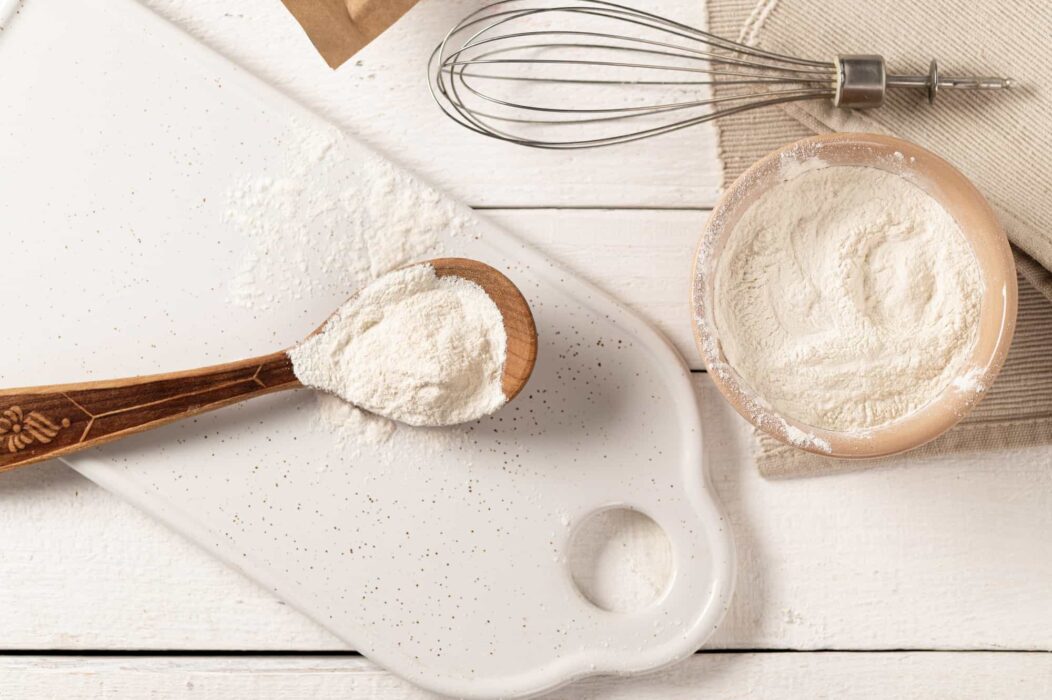
Conclusion
I have told you about seven keto cornstarch alternatives that you can use while on a low-carb diet. Whichever option you choose, all of them will help you diversify your keto menu and achieve healthy weight loss without excess carbohydrates. However, if you’re buying a ready-made mix for baking or thickening liquids, make sure it’s free of hidden carbs and sugars.
Discover new keto recipes and enjoy a healthy lifestyle!
Sources:
- Achour L, Flourié B, Briet F, Franchisseur C, Bornet F, Champ M, Rambaud JC, Messing B. Metabolic effects of digestible and partially indigestible cornstarch: a study in the absorptive and postabsorptive periods in healthy humans. Am J Clin Nutr. 1997 Nov;66(5):1151-9. doi:10.1093/ajcn/66.5.1151. PMID: 9356532.
- Ullah, R., Nadeem, M., Khalique, A., Imran, M., Mehmood, S., Javid, A., & Hussain, J. (2016). Nutritional and therapeutic perspectives of Chia (Salvia hispanica L.): a review. Journal of food science and technology, 53(4), 1750–1758. https://www.ncbi.nlm.nih.gov/pmc/articles/PMC4926888/.
- Parikh, M., Maddaford, T. G., Austria, J. A., Aliani, M., Netticadan, T., & Pierce, G. N. (2019). Dietary Flaxseed as a Strategy for Improving Human Health. Nutrients, 11(5), 1171. https://www.ncbi.nlm.nih.gov/pmc/articles/PMC6567199/
- Kamil A, Chen CY. Health benefits of almonds beyond cholesterol reduction. J Agric Food Chem. 2012 Jul 11;60(27):6694-702. doi: 10.1021/jf2044795. Epub 2012 Feb 17. PMID: 22296169.
- Ahmed, F. A., & Ali, R. F. (2013). Bioactive compounds and antioxidant activity of fresh and processed white cauliflower. BioMed research international, 2013, 367819. https://www.ncbi.nlm.nih.gov/pmc/articles/PMC3793502/
- Keithley, J. K., Swanson, B., Mikolaitis, S. L., DeMeo, M., Zeller, J. M., Fogg, L., & Adamji, J. (2013). Safety and efficacy of glucomannan for weight loss in overweight and moderately obese adults. Journal of obesity, 2013, 610908. https://www.ncbi.nlm.nih.gov/pmc/articles/PMC3892933/
- Jalanka, J., Major, G., Murray, K., Singh, G., Nowak, A., Kurtz, C., Silos-Santiago, I., Johnston, J. M., de Vos, W. M., & Spiller, R. (2019). The Effect of Psyllium Husk on Intestinal Microbiota in Constipated Patients and Healthy Controls. International journal of molecular sciences, 20(2), 433. https://www.ncbi.nlm.nih.gov/pmc/articles/PMC6358997/
- EFSA Panel on Food Additives and Nutrient Sources added to Food (ANS), Mortensen, A., Aguilar, F., Crebelli, R., Di Domenico, A., Frutos, M. J., Galtier, P., Gott, D., Gundert-Remy, U., Lambré, C., Leblanc, J. C., Lindtner, O., Moldeus, P., Mosesso, P., Oskarsson, A., Parent-Massin, D., Stankovic, I., Waalkens-Berendsen, I., Woutersen, R. A., Wright, M., … Dusemund, B. (2017). Re-evaluation of xanthan gum (E 415) as a food additive. EFSA journal. European Food Safety Authority, 15(7), e04909. https://www.ncbi.nlm.nih.gov/pmc/articles/PMC7009887/